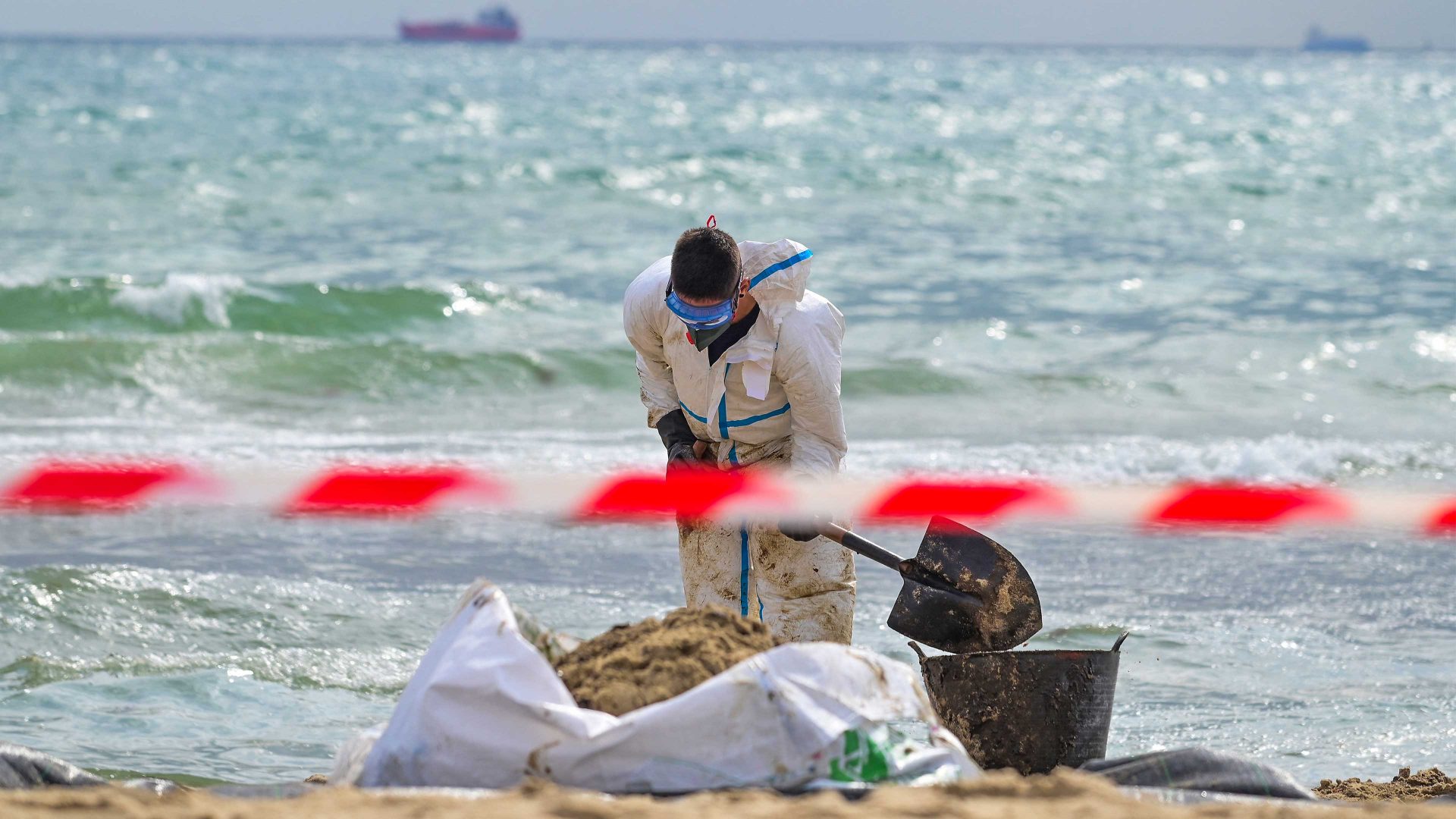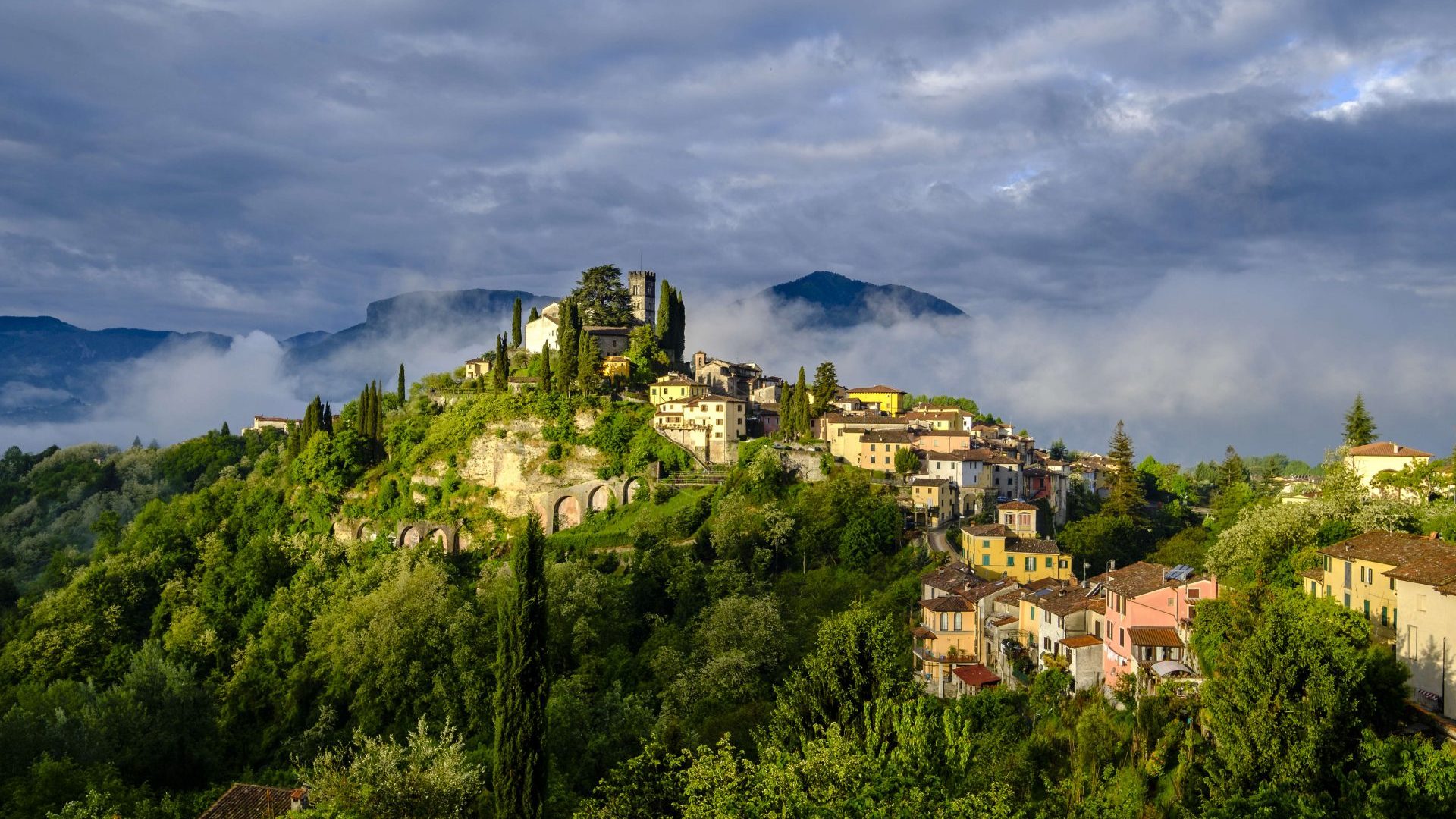At El Saler beach in Valencia’s Albufera nature reserve, disappointed-looking locals turn and trek back towards the main road, their parasols and deck chairs useless. “We didn’t know,” one woman says, shrugging and leaving. For several days last week an oil spill closed three beaches in the area, turning a 2km section of the sea black and glazing the shoreline in syrupy, tar-like stains.
Normally during high season these beaches would be filled with people, but the day after the spill, El Saler is deserted. Red tape cordons off the sea. Red flags hang from lifeguard towers, rippling in the wind. A series of white tents dot the sand. Tractors come and go, and workers in hazmat suits dig up the shoreline and dump dark, slushy mixtures into bags and buckets.
Further down the beach, a pair of lifeguards shelter from the sun under an umbrella. “Yesterday there was a big stain,” one explains, running a hand over the sea. He says it seemed to start up by the port and spread southwards down the coast. The sea is no longer black, but as the tide crashes on to the shore a scummy-brown foam forms and sits on the waterline, glistening chemically in the sun. There’s still a faint oily smell in the air when the wind dies down.
Clean-up workers and Red Cross staff are reluctant to talk. They say they don’t know anything and that even if they did, they can’t speak to the press. The public prosecutor’s office is opening an investigation, and Guardia Civil agents have been dispatched to investigate the origin of the spill.
Through the haze Valencia’s industrial port looms in the distance, with its cranes like stick men in the sky, and mammoth cruise ships slowly move their way across the blue horizon. Valencia’s port authority initially denied that the leak came from any ships there, but campaigners can’t see how it could have started anywhere but the port itself, or the streams of ships passing through the area. Looking down the coast, a column of Baleària ferries moves steadily towards Mallorca.
Campaign groups have long warned about the potential ecological impacts of port expansion (Valencia’s is already one of the busiest in Europe) alongside a nature reserve. Works have been in the pipeline for years, but have come up against opposition. A few months ago it seemed the project was finally unblocked and moving ahead, but now, with an unexplained oil spill, the debate reopens.
Sure enough, protesters soon arrive with banners asking: “More port? No thanks”. Paula Espinosa, spokesperson for the regional party Compromís, warns the local press that “the expansion of Valencia port will increase the number of ships anchoring in front of Albufera, increasing the danger of spills.”
El Saler, along with beaches at l’Arbre del Gos and La Garrofera, the other two closed by the spill, sit in a leafy nature reserve to the south of the city. They are known to be the cleaner, greener and more natural of the city’s beaches, particularly when compared with La Malvarrosa, the busier, touristy beach in town.
More people arrive, already in their swimming costumes. A confused-looking French family set down their ice box and badminton rackets and begin taking photos. “Does anyone know what’s going on?” one man asks. When he saw the white tents and hazmat workers, he says, he’d assumed a body had washed up on the shore. Disappointed he can’t swim, he shrugs and moves towards the public showers. “You can have a shower at least,” he jokes, before leaving.
The beaches began reopening that weekend. Then the red flags came down and swimming was allowed again. But passing the eye test isn’t enough. Pilar Bernabé, government delegate to the Valencia region, warned that “the fact that the stain can’t be seen does not prevent it from continuing to reach the coast in a more disintegrated form”.
Maria López, a local, told the Valencian press: “It’s a relief to see the beaches open again, but I don’t feel safe taking my children to play near the water yet.” More tests are under way, the authorities say.
But if port expansion means more pollution and potential oil spills, the impact won’t only be ecological but also economic.
In small towns scattered around the Albufera area – famous too for its freshwater lagoon and being the spiritual home of paella – tourism is the bedrock of seasonal economies. They got lucky this time, but if the port is expanded, the next spill could be far worse.
Conor Patrick Faulkner is a freelance writer based in Valencia



